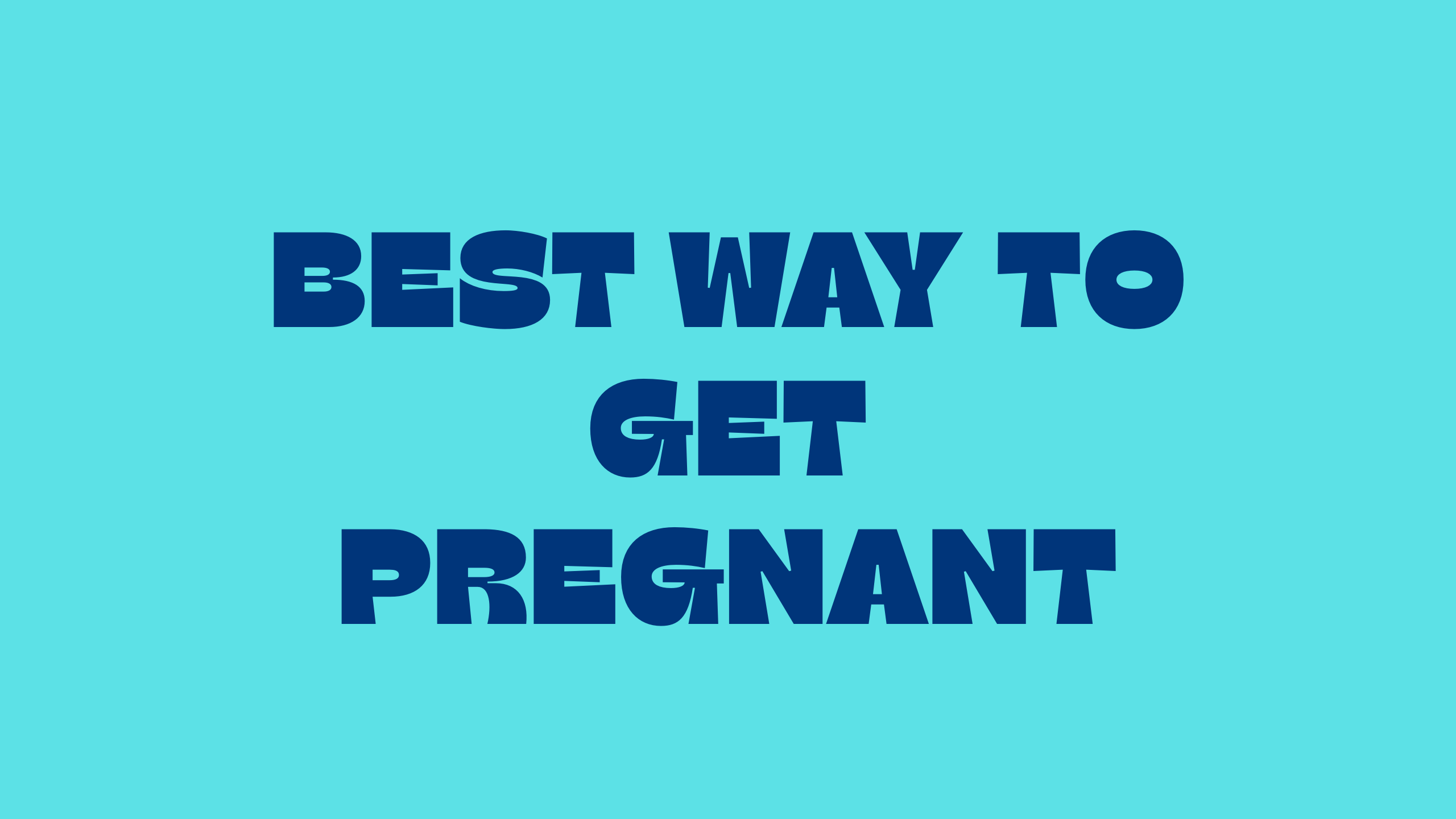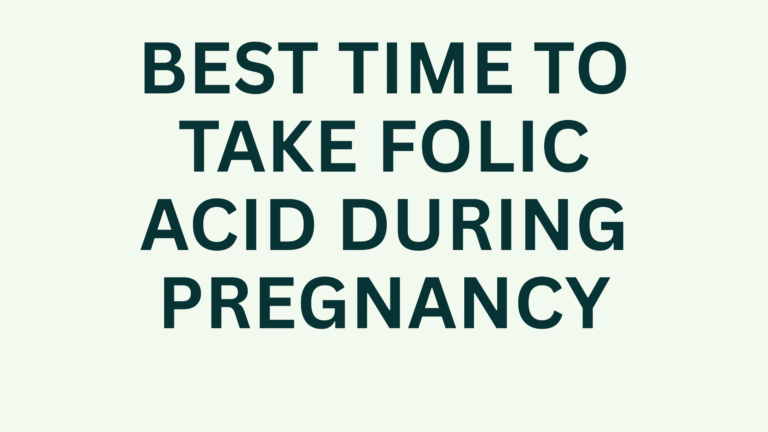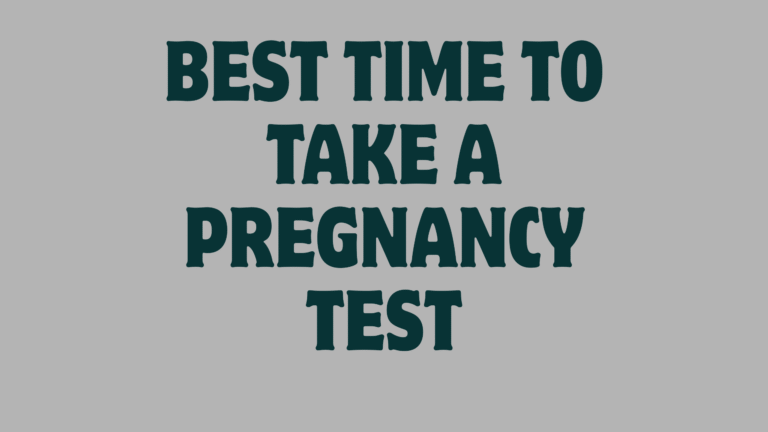Best Way to Get Pregnant: A Complete Guide for Couples

Best way to get pregnant
Best way to get pregnant is a question that many couples ask when planning to start or expand their family. Conception can occur naturally, but understanding fertility, ovulation, timing, lifestyle, and medical options can dramatically improve your chances. This comprehensive guide explores strategies, tips, nutrition, medical assistance, and real-life stories to help couples conceive successfully.
Understanding Fertility- Best Way to Get Pregnant: A Complete Guide for Couples
Fertility is the natural ability to conceive a child. For most healthy couples under 35, the chance of getting pregnant in any given month is about 20–25%. Fertility declines with age, particularly after 35 for women and after 40 for men. Several factors affect fertility:
- Age: Women’s fertility decreases with age due to declining egg quality.
- Health conditions: Conditions like polycystic ovary syndrome (PCOS), endometriosis, thyroid disorders, and diabetes can affect fertility.
- Lifestyle factors: Smoking, alcohol, stress, and obesity can negatively impact fertility for both partners.
- Reproductive history: Previous pregnancies, miscarriages, or pelvic surgeries can influence conception chances.
Understanding your body and fertility window is essential for increasing your chances. Ovulation—the release of an egg from the ovary—is the most critical factor. An egg remains viable for about 12–24 hours after release, while sperm can survive up to five days in the reproductive tract. Timing intercourse around ovulation is the most effective way to conceive.
Timing Is Key: When to Try
The best way to get pregnant is to have regular intercourse during your fertile window. This period usually includes the five days before ovulation and the day of ovulation itself. Many women ovulate about 14 days before their next period, but cycles vary.
Couples can track ovulation using:
- Basal Body Temperature (BBT): A slight rise in BBT indicates ovulation has occurred.
- Ovulation Predictor Kits (OPKs): These detect the surge in luteinizing hormone (LH) that triggers ovulation.
- Cervical Mucus Monitoring: Fertile cervical mucus is clear, stretchy, and egg-white in consistency.
- Menstrual Cycle Tracking Apps: Apps help predict fertile days based on cycle history.
Having intercourse every 2–3 days throughout the cycle ensures sperm availability when ovulation occurs. Avoid stress and pressure; conception is more likely when the process is relaxed and enjoyable.
Lifestyle Changes to Boost Fertility – Best Way to Get Pregnant
Healthy lifestyle choices significantly impact fertility.
For Women:
- Maintain a healthy weight: Being underweight or overweight can affect hormone levels and ovulation.
- Eat a balanced diet: Include leafy greens, fruits, whole grains, lean proteins, and healthy fats.
- Take supplements: Folic acid, vitamin D, zinc, and omega-3 fatty acids support reproductive health.
- Limit alcohol and caffeine: Excessive consumption may reduce fertility.
For Men:
- Exercise moderately: Avoid excessive high-intensity training that can affect sperm count.
- Avoid smoking and alcohol: Both reduce sperm quality and motility.
- Reduce stress: Chronic stress can lower testosterone levels and sperm production.
- Protect against heat and toxins: Hot tubs, laptops on the lap, and certain chemicals can harm sperm.
Both partners should maintain regular sleep patterns, manage stress, and reduce exposure to environmental toxins.
Nutrition and Supplements
Diet is a critical factor in fertility. Key nutrients include:
- Folic Acid: Vital for women before and during early pregnancy to prevent birth defects.
- Zinc: Supports sperm production in men and ovulation in women.
- Vitamin D: Essential for hormonal balance and reproductive function.
- Omega-3 Fatty Acids: Improves egg and sperm quality.
Eating a variety of whole foods, avoiding processed items, and staying hydrated can improve reproductive health. Prenatal vitamins should be started at least three months before conception to optimize nutrient stores.
For more on pre-pregnancy supplements, see Best Time to Take Folic Acid During Pregnancy.
Real-Life Stories: The Importance of Timing and Lifestyle
Sarah’s Journey
Sarah, 29, had irregular cycles and didn’t know when she ovulated. After six months of trying without success, she tracked her cycles using an app and monitored her cervical mucus. She also adopted a balanced diet and started prenatal vitamins. Within three months, Sarah conceived naturally. Her story highlights how understanding your fertile window and maintaining a healthy lifestyle can make a real difference.
Mark and Emily’s Experience
Emily, 35, had an unplanned pregnancy after years of fertility struggles. She and her partner Mark learned that lifestyle changes—quitting smoking, moderating alcohol, and managing stress—improved their fertility. Emily also started taking supplements, including folic acid and vitamin D. Their baby was born healthy, emphasizing that even small changes can improve conception chances.
Common Mistakes to Avoid
- Ignoring the fertile window.
- Excessive stress and pressure to conceive.
- Poor diet and unhealthy lifestyle habits.
- Waiting too long to seek medical advice.
Medical Assistance and Fertility Treatments
Sometimes, natural conception is challenging. Fertility evaluation helps identify underlying issues such as low sperm count, ovulation disorders, blocked fallopian tubes, or hormonal imbalances.
Common Treatments
- Ovulation Induction: Medications stimulate egg production in women with irregular cycles.
- Intrauterine Insemination (IUI): Sperm is placed directly into the uterus around ovulation.
- In Vitro Fertilization (IVF): Eggs are fertilized outside the body and implanted into the uterus.
- Surgical Interventions: Procedures to correct blocked tubes, endometriosis, or other reproductive issues.
Early consultation with a fertility specialist ensures personalized strategies and improves chances of success.
Tips for Improving Chances Naturally
- Track ovulation consistently.
- Have intercourse every 2–3 days, especially during the fertile window.
- Maintain a healthy weight and lifestyle.
- Reduce alcohol, caffeine, and avoid smoking.
- Manage stress through yoga, meditation, or counseling.
- Take necessary supplements, including folic acid, vitamin D, and omega-3s.
- Stay patient—conception may take several months even in healthy couples.
FAQs About Getting Pregnant
Q: How long should I try before seeking help?
A: Couples under 35 should try for 12 months; over 35, try for 6 months before consulting a fertility specialist.
Q: Can stress prevent pregnancy?
A: High stress can affect hormone levels and ovulation, reducing chances of conception.
Q: Are fertility apps accurate?
A: Apps can help track cycles but may not predict ovulation perfectly. Combine with other methods like cervical mucus monitoring or OPKs.
Q: Does diet really matter?
A: Yes, nutrition affects hormone balance, ovulation, sperm quality, and overall fertility.
Q: Can men improve fertility?
A: Absolutely. Sperm count and motility can improve with a healthy diet, exercise, and avoiding toxins.
Conclusion
The best way to get pregnant involves understanding fertility, tracking ovulation, making healthy lifestyle choices, and considering medical assistance when necessary. Couples who track cycles, maintain a balanced diet, manage stress, and follow expert guidance significantly increase their chances of conception. Planning ahead, staying consistent, and seeking help early ensure the healthiest possible journey to parenthood.
About The Author
JYO JOURNEY
PregnancyKit – to provide real, honest, and easy-to-understand information for women who might be wondering, “Am I pregnant?” or “What should I expect now?” Every guide I write is based on what we wished we had known during our own journey.
Through PregnancyKit, I want to help women feel supported, informed, and confident from the very first symptom. Because I believe every woman deserves clarity, care, and a little less stress during one of the most important journeys of her life.



7 thoughts on “Best Way to Get Pregnant: A Complete Guide for Couples”